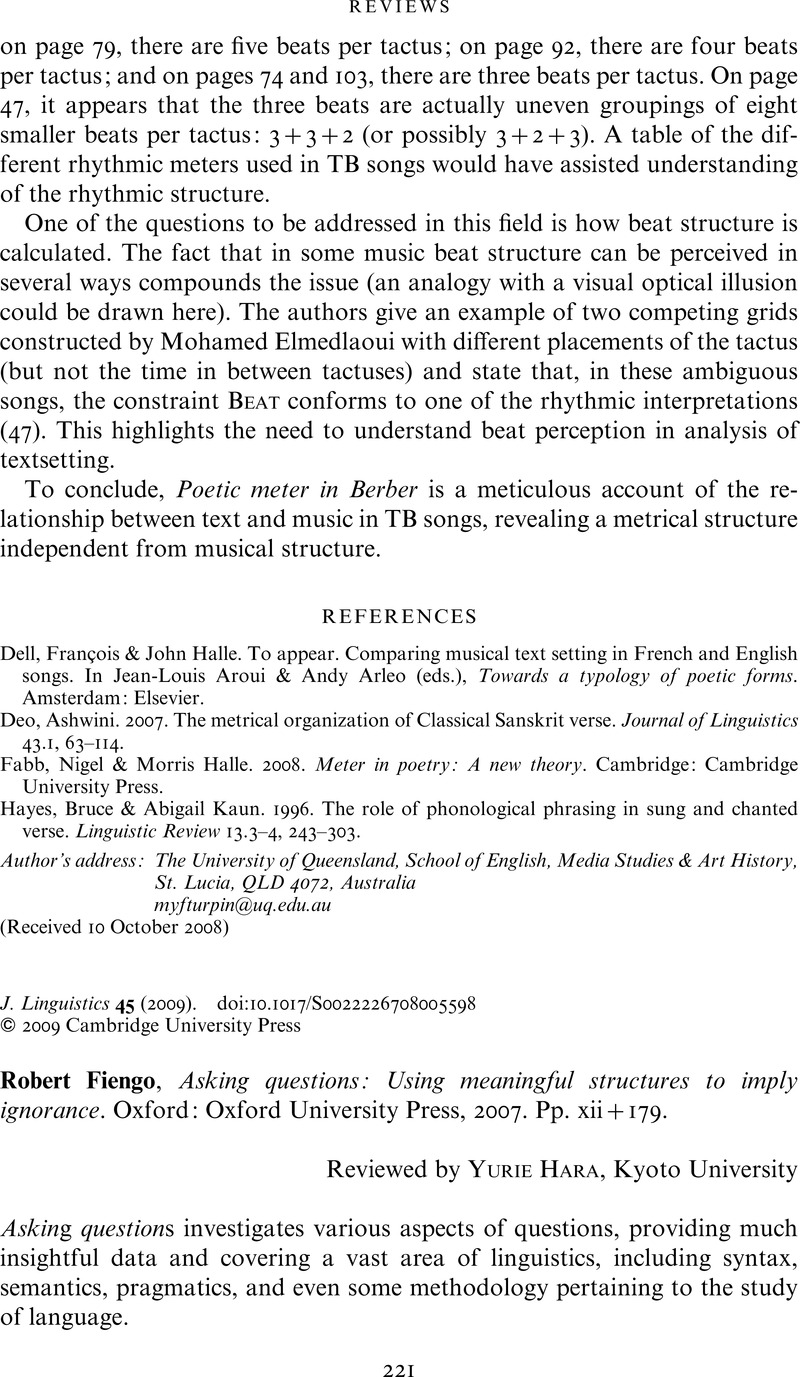No CrossRef data available.
Article contents
Robert Fiengo, Asking questions: Using meaningful structures to imply ignorance. Oxford: Oxford University Press, 2007. Pp. xii+179.
Review products
Robert Fiengo, Asking questions: Using meaningful structures to imply ignorance. Oxford: Oxford University Press, 2007. Pp. xii+179.
Published online by Cambridge University Press: 28 January 2009
Abstract
An abstract is not available for this content so a preview has been provided. Please use the Get access link above for information on how to access this content.

- Type
- Reviews
- Information
- Copyright
- Copyright © 2009 Cambridge University Press
References
REFERENCES
Austin, J. L. 1953. How to talk: Some simple ways. The Aristotelian Society 53, 227–246. [Also in Urmson, J. O. & Warnock, G. J. (eds.) J. L. Austin: Philosophical papers, 2nd edn., 134–153. Oxford: Oxford University Press, 1970.]Google Scholar
Frege, Gottlob. 1891/1952. Funktion und Begriff: Vortrag, gehalten in der Sitzung. Jena: Hermann Pohle. [English translation ‘function and concept’, in Beaney, Michael (ed.) The Frege reader, 130–148. Oxford: Blackwell, 1997.]Google Scholar
Groenendijk, Jeroen A. G. & Stokhof, Martin J. B.. 1984. Studies on the semantics of questions and the pragmatics of answers. Ph.D. dissertation, University of Amsterdam.Google Scholar
Gunlogson, Christine. 2003. True to form: Rising and falling declaratives as questions in English. New York: Routledge.Google Scholar
Hamblin, Charles L. 1958. Questions. Australasian Journal of Philosophy 36.3, 159–168.Google Scholar
Karttunen, Lauri. 1977. Syntax and semantics of questions. Linguistics and Philosophy 1.1, 3–44.CrossRefGoogle Scholar
Nilsenová, Marie. 2002. A game-theoretical approach to the meaning of intonation in rising declaratives and negative polar questions. In Bel, Bernard & Marlien, Isabel (eds.) Speech Prosody 2002, ▪▪–▪▪. Aix-en-Provence.Google Scholar
Romero, Maribel & Han, Chung-hye. 2004. On negative yes/no questions. Linguistics and Philosophy 27, 609–658.Google Scholar


